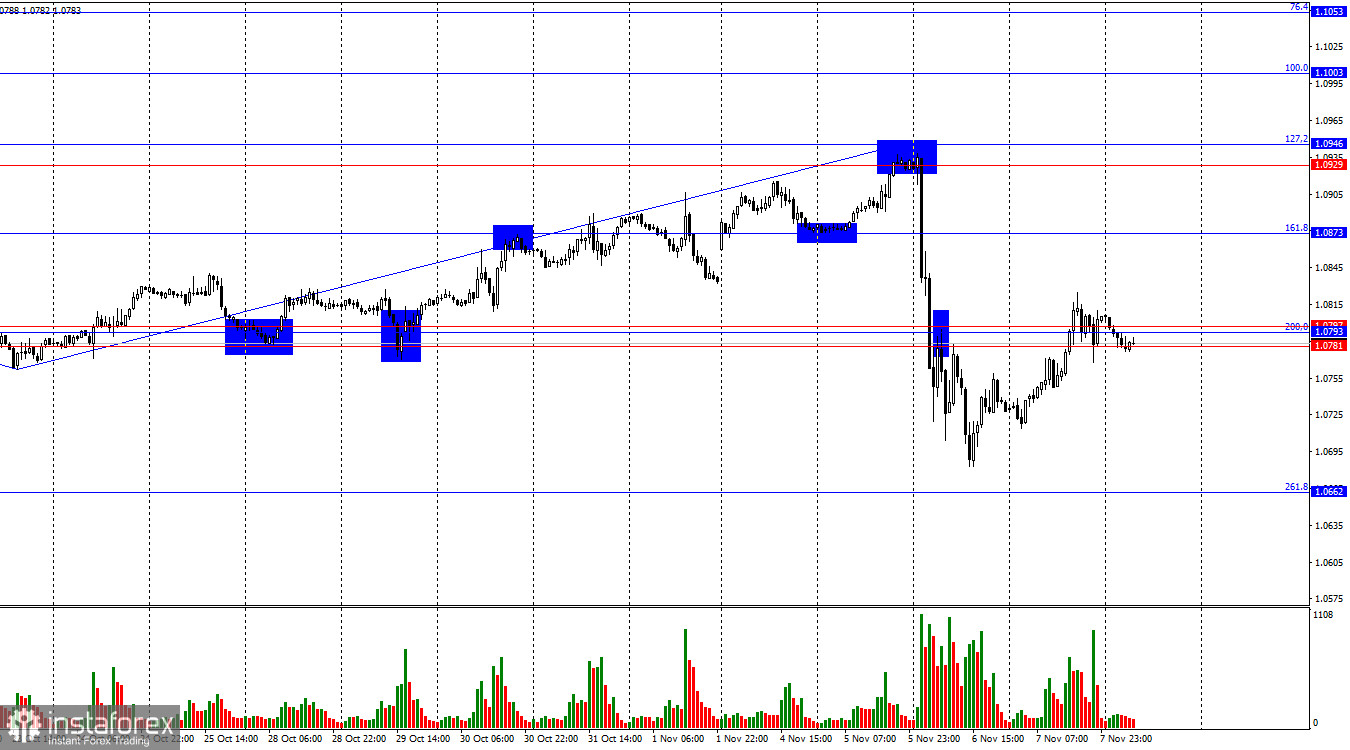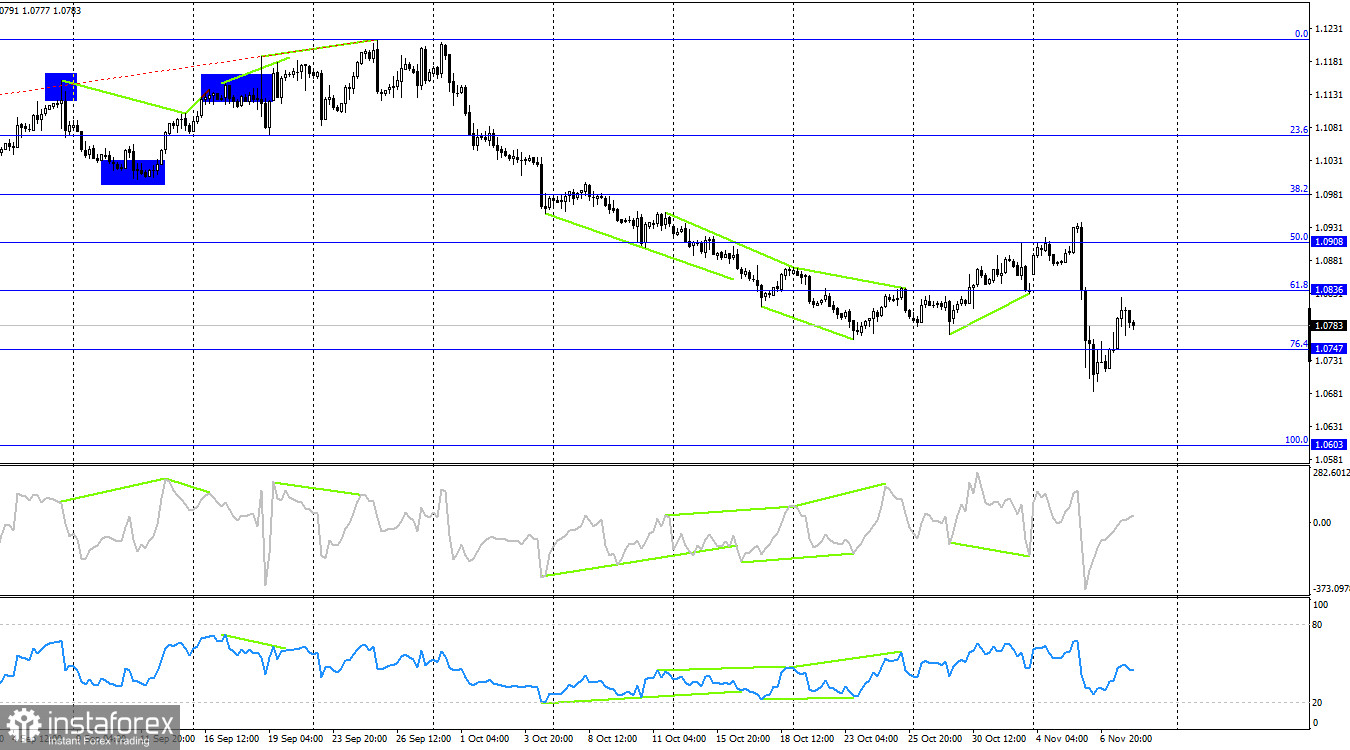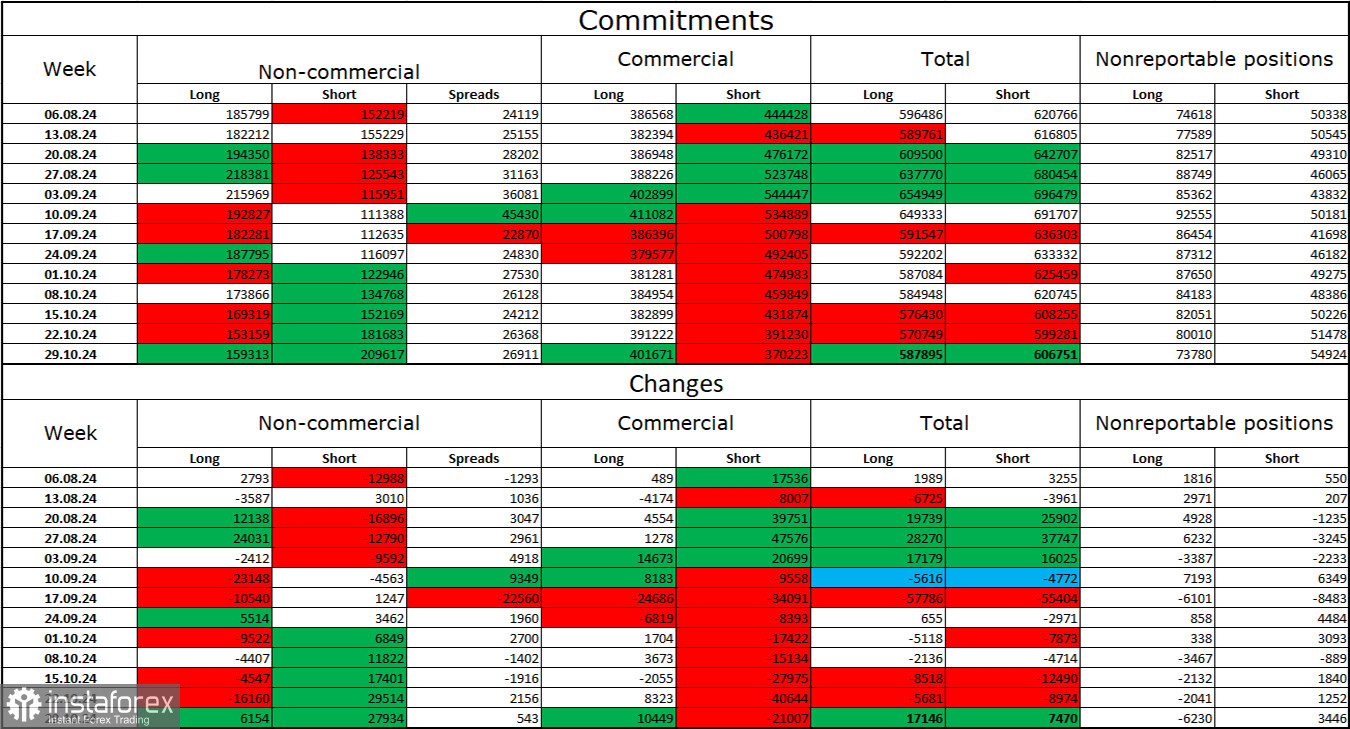
The wave structure is straightforward. The last completed upward wave failed to break the peak of the previous wave, while the new downward wave easily broke the last low. This confirms the continuation of the bearish trend. The corrective wave formation is now considered complete. Bulls have completely lost control of the market, and regaining it will require significant effort, which seems unlikely in the near term.
Thursday's news background once again supported the bears, although sellers had to wait until the evening for this support. The Fed lowered the interest rate by another 0.25%. At first glance, this seems like a dovish move. However, these gradual 0.25% rate cuts have long been priced in by traders. A decline in the dollar could have been expected only if the FOMC had decided on a 0.50% cut.
Jerome Powell stated after the meeting that the Fed would continue to rely on incoming economic data and might consider pausing rate cuts in December due to a significant slowdown in inflation. In my view, a December pause was unexpected by traders, which could support the U.S. dollar. Thus, I expect the pair to decline further from the 1.0781–1.0797 zone. While the dollar did not strengthen yesterday, it may do so today. The bearish trend persists, and bulls have extremely weak informational support.

On the 4-hour chart, the pair reversed in favor of the U.S. dollar and consolidated below the 76.4% corrective level at 1.0747. This suggests further decline toward the 100.0% corrective level at 1.0603. No emerging divergences are visible in any technical indicators today. A repeated close below 1.0747 would increase the likelihood of a decline.
Commitments of Traders (COT) Report

During the last reporting week, speculators opened 6,154 long positions and 27,934 short positions. Sentiment among the "Non-commercial" group shifted to bearish. Speculators now hold a total of 159,000 long positions and 209,000 short positions.
For the eighth consecutive week, institutional investors have been reducing their positions in the euro. In my view, this indicates the start of a new bearish trend or at least a strong global correction. The key driver for the dollar's previous decline—expectations of FOMC monetary policy easing—has already been priced in, leaving the market with fewer reasons to aggressively sell the dollar. While new factors may emerge over time, the U.S. dollar is still more likely to strengthen. Technical analysis also points to the beginning of a bearish trend, and I am preparing for a prolonged decline in the EUR/USD pair.
Economic Calendar for the U.S. and Eurozone
- US: University of Michigan Consumer Sentiment Index (15:00 UTC)
On November 8, the economic calendar contains only one notable event, which is expected to have a limited market impact.
Forecast for EUR/USD and Trader Recommendations
This week, traders should exercise extreme caution with any trades. The U.S. elections and the Fed meeting have caused high volatility and unpredictable movements. Today, selling opportunities can be considered if quotes rebound from the 1.0781–1.0797 zone on the hourly chart, with a target at 1.0662.
Fibonacci grids are plotted at 1.1003–1.1214 on the hourly chart and 1.0603–1.1214 on the 4-hour chart.





















